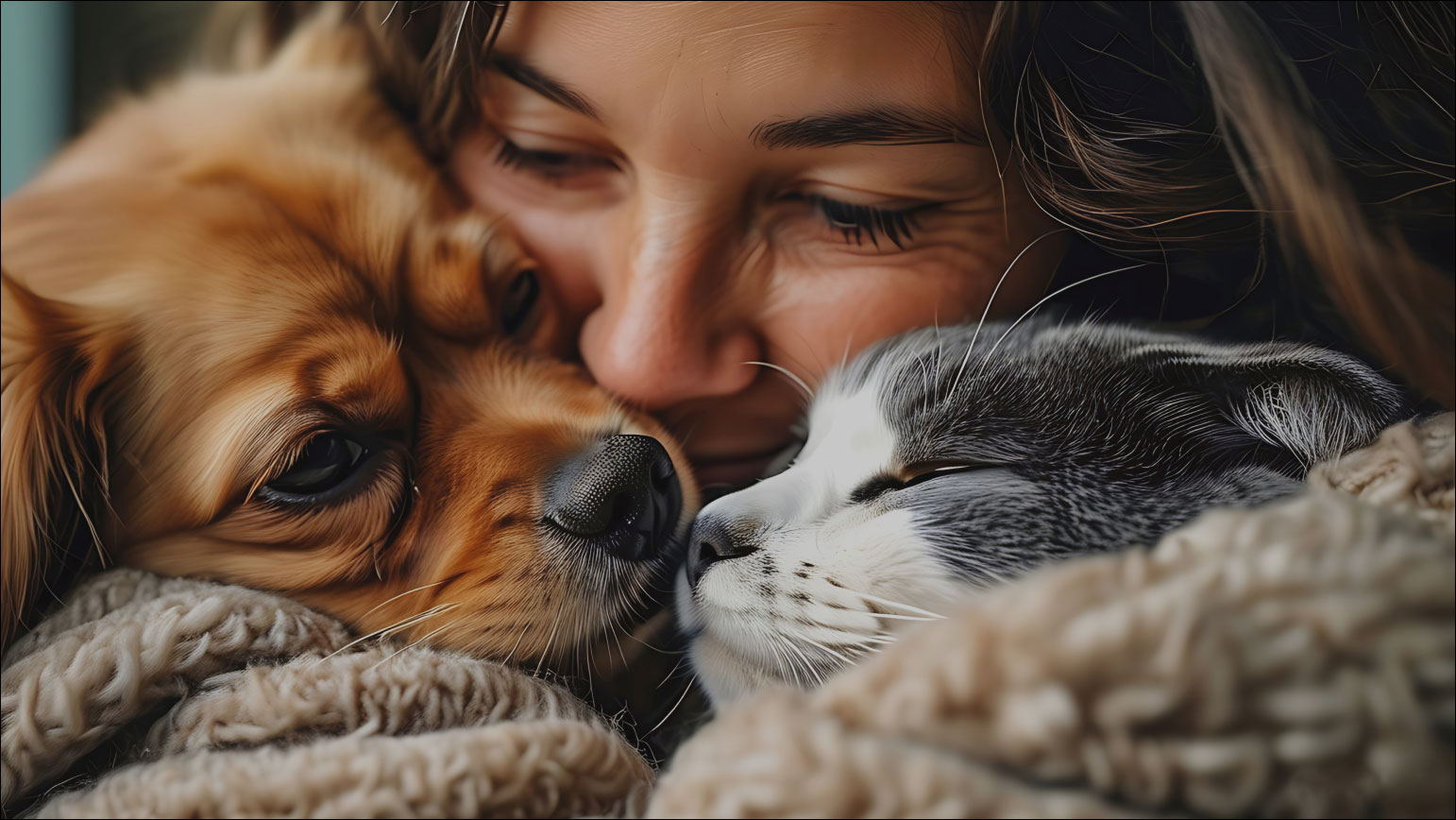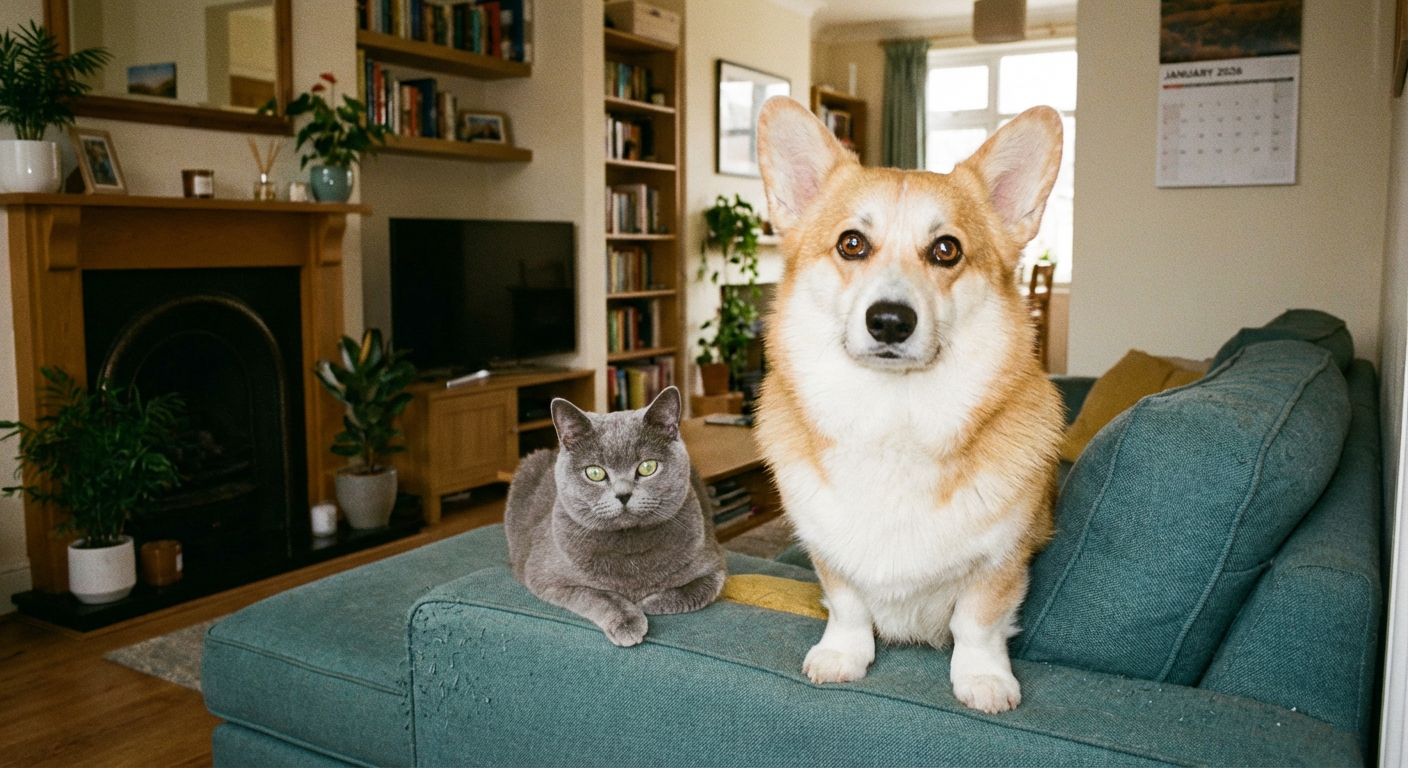Keeping Your Pets Safe During Fireworks
With Firework’s night fast approaching, many of us will be worrying about how our dogs and cats may cope. In nature, loud noises are often a sign of danger, so dogs and cats have understandably evolved to be afraid of them. Our pets also have a much better sense of hearing, so fireworks will be louder, and they will be able to hear them from much further away.
Bright flashing lights can also upset your dog or cat, and with many displays often going on at once, it can be disorientating and frightening for pets as they cannot predict where the next noise will come from.
Although primarily lit to celebrate bonfire night in the UK, fireworks are also used in Diwali, New Years and many wedding celebrations. This can make it much harder to predict when they may go off, which can be particularly stressful for owners if your dog or cat reacts badly to them. But don’ t worry, there are ways to help or even prevent this fear which we will cover below.
In the lead up to fireworks night, it is also important to ensure that all microchip details are up to date. Research shows that there is a 100% increase in dogs going missing during the fireworks season (The Kennel Club, 2023). Be sure to check that your house and garden are also secure.
How to tell if your dog or cat fears fireworks
This may sound obvious, and as an owner you’ll no doubt be attuned to the emotions of your pet and knowing how they may be feeling at different moments and when faced with different circumstances. However, whether your dog or cat will show a “fight or flight” response, and the extent to which they will be affected, may depend on their breed, their personality, and their past experiences. If your pet has reacted to fireworks in the past, or is reactive to other loud noises (e.g., thunderstorms, lorries, etc.), it is more likely they will show a reaction again.
Signs to look out for in dogs:
- Shivering and trembling
- Excessive barking
- Pacing
- Howling / crying
- Excessive panting
- Licking, chewing, and drooling
- Seeming particularly clingy
- Hiding and avoiding contact
- Trying to escape
Signs to look out for in cats:
- Hiding or becoming withdrawn
- Eating or drinking less than usual
- Fearful body language
- Pacing, circling or restlessness
- Excessively grooming themselves
- Toileting in the house
So, what can we do to help our dogs and cats feel safe and secure?
- Walk your dog during daylight hours to avoid times when fireworks are likely to be set off.
- Provide a calm, safe space. Move your dog or cat to their safe haven each evening before the fireworks begin. Provide toys and other things that they enjoy and help them feel safe and relaxed
- Make sure there are things for you to do too, so your dog isn’t left alone.
- Close windows and curtains to muffle the sound of fireworks. Blackout your doggy safe haven, so they can’t see any flashes outside.
- Put on some music or TV to mask the firework sounds.
- Promote calm. Try and stay as calm as possible and avoid reacting to the fireworks yourself.
- Play with a toy to see if your pet wants to join in, but don’t force them to play.
- Consider calming aids. Pheromone diffusers and nutraceuticals can be used to aid calming. In more severe cases your vet may be able to prescribe calming medication.
If your dog or cat still reacts badly to the fireworks this season, then further help may be required from a veterinary professional or a behaviourist. It is always better to prepare for fireworks as early as possible, so it may be worth starting training with them straightaway, with the hope that they will be more relaxed next year. Although fireworks can be a source of fear and distress for many dogs and cats, with planning and training, it is possible to improve things over time.
If you have further questions or any other pet health enquiries, our team of our Registered Veterinary Nurses is here to help


